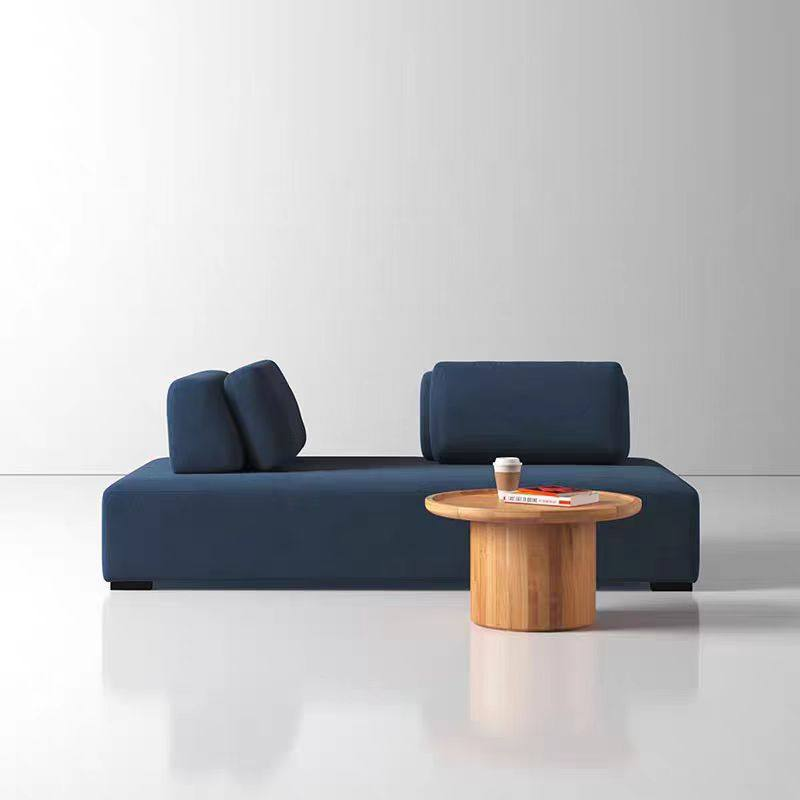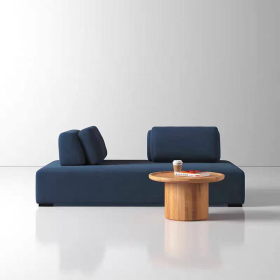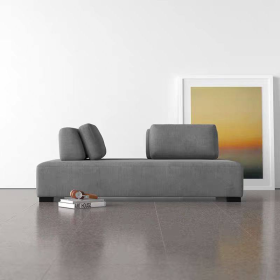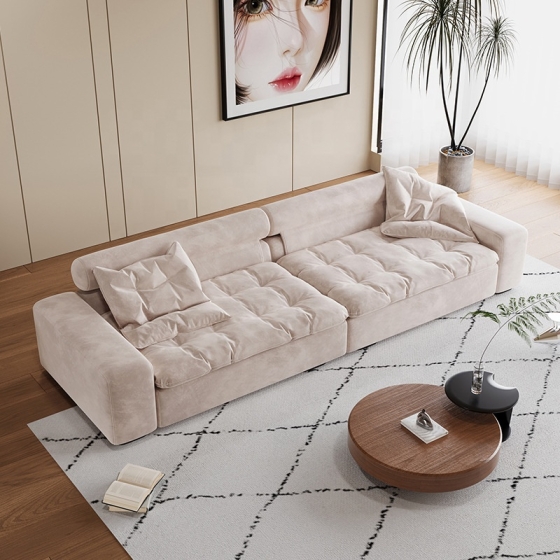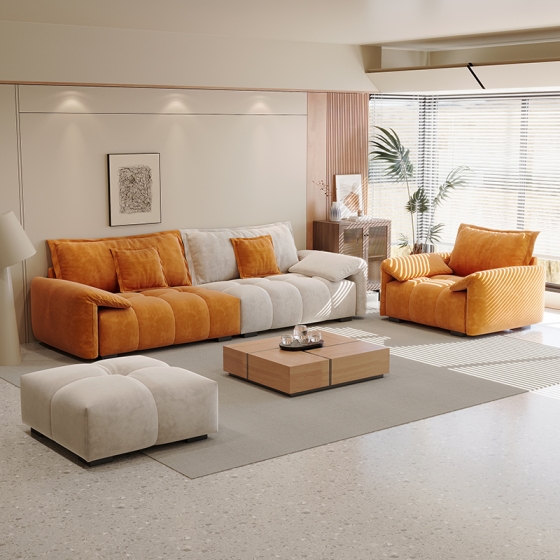Product Introduction
1. Product Information
-
Model: N01
-
Unfolded Dimensions: 2200*1150*800mm
-
Packaging Type: Compressed packaging, carton box
-
Fabric Material: Sponge with fabric upholstery
-
Cushion Filling: 35/50 high-density sponge + spring pack
-
Accessories: Comes with 2 plush cotton pillows and 2 removable backrests (includes 10kg steel plate)
-
Weight: 54.5kg
2. Pricing Information
3. Features & Advantages
-
Customizable Backrest: Features 2 removable backrests with 10kg steel plates, providing adjustable support for personalized comfort.
-
Extra Soft Cushioning: Comes with 2 plush cotton pillows, adding to the cozy and relaxing experience.
-
Durable Fabric Upholstery: The fabric material is soft, breathable, and easy to maintain, ensuring long-lasting use.
-
Space-Saving & Efficient Packaging: Compressed packaging optimizes storage and reduces shipping costs.
-
Sturdy and Reliable: Built with durable materials and reinforced with steel plates, offering stability and long-term durability.
4. Suitable Applications
The sofa is ideal for modern living rooms, apartments, lounges, and office spaces, providing both style and functionality. Its modular and space-saving design makes it perfect for urban homes, while the adjustable backrest and plush cushions enhance relaxation. Whether used for casual lounging or formal seating, this sofa ensures ultimate comfort and elegance.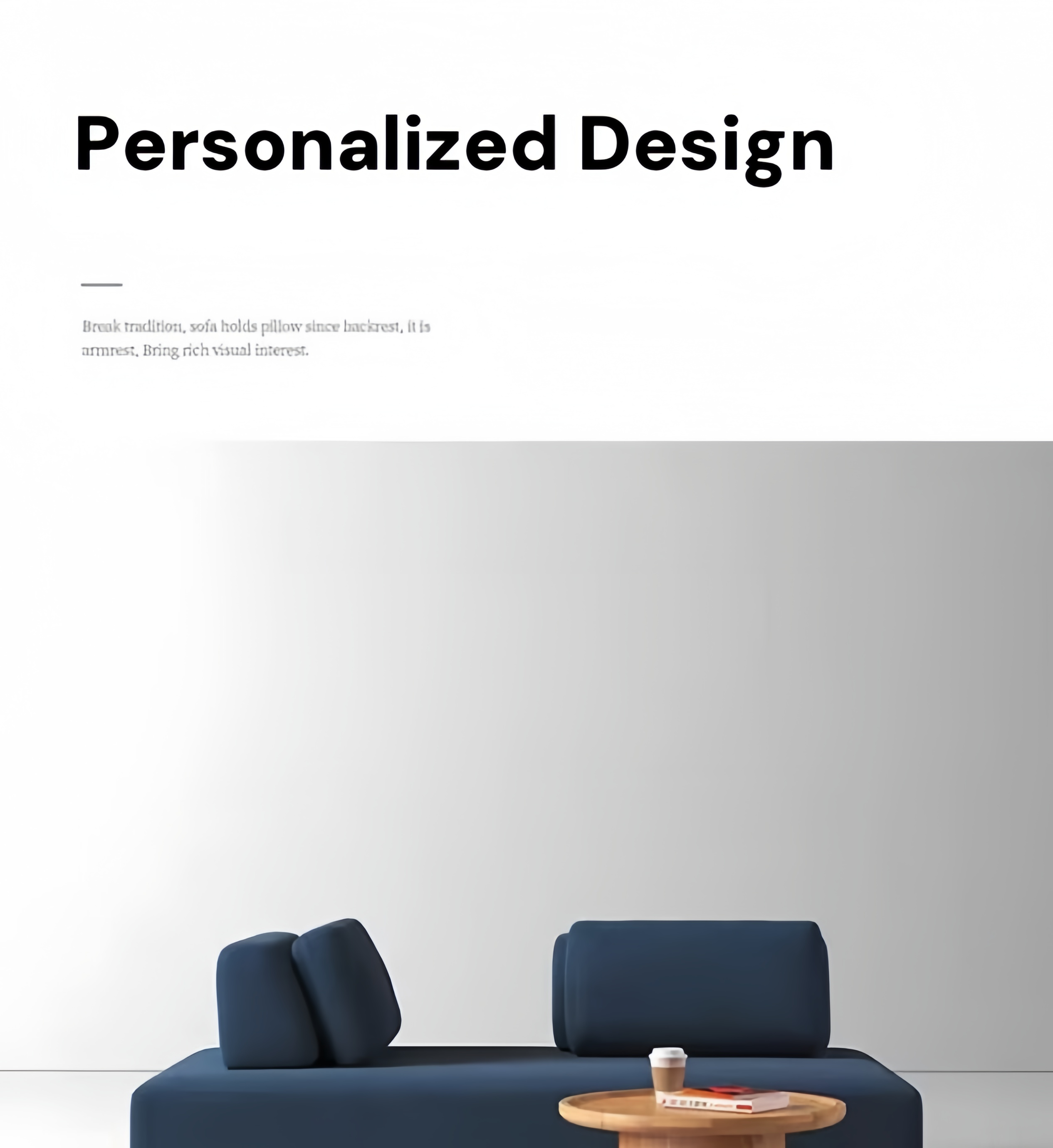


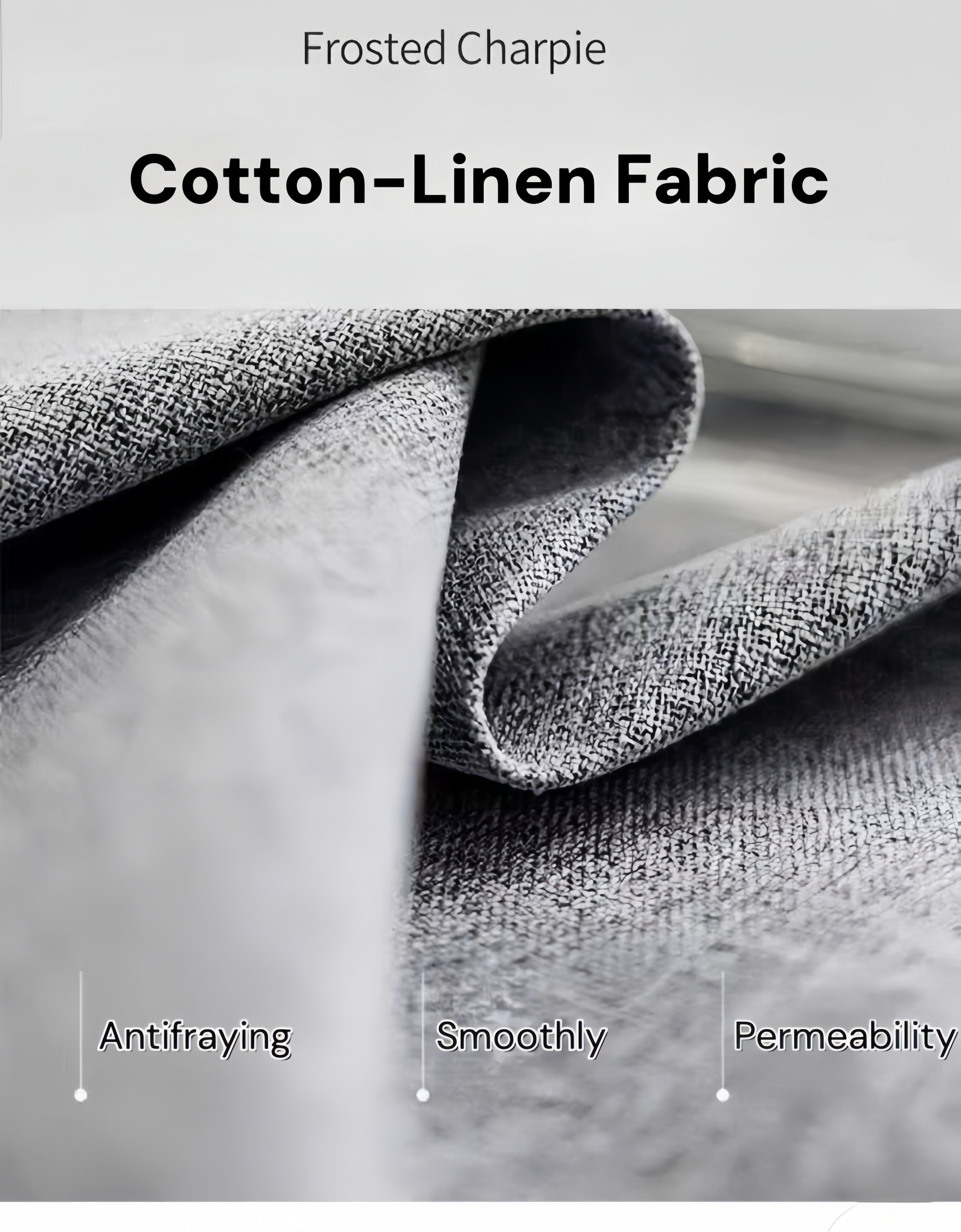
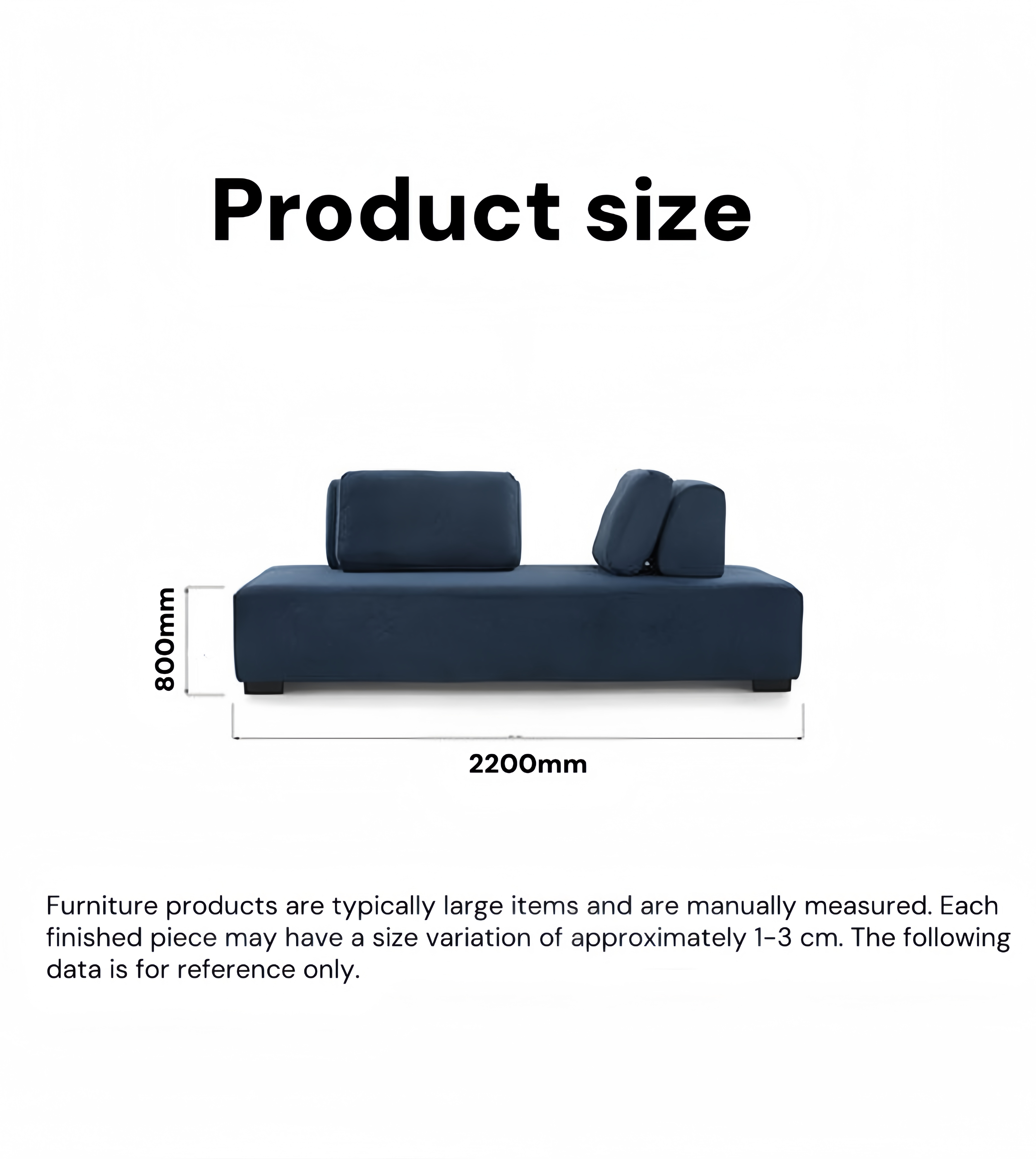
How to Ship Furniture from China?
Shipping costs can represent a significant portion of the landed cost of your goods. Properly managing the transportation process will help you reduce overall expenses.
Full Container Load (FCL) vs. Less Than Container Load (LCL)
-
FCL (Full Container Load) refers to shipping a full container, which is generally the most cost-effective method, especially for larger shipments. A 40-foot container, for example, offers substantial savings in comparison to other shipping methods.
-
LCL (Less Than Container Load) involves shipping goods that don’t fill a full container, meaning your goods will share space with other shipments. While LCL can be more expensive, it’s a suitable option for smaller shipments. Sin embargo, LCL comes with additional fees. Unless you have urgent shipments, it's generally better to opt for FCL.
That said, there are exceptions. Sometimes, LCL may be cheaper than FCL, especially when ocean freight rates are unreasonable (e.g., during the second half of 2020), or if you're considering a 20-foot container, in which case LCL can be more cost-effective.
Choosing the Right Incoterms
When engaging in international trade, it’s crucial to understand the main Incoterms used: EXW, FCA, FOB, CIF, DAP, DDP. Each term outlines the responsibilities of both the buyer and the seller, and choosing the right one impacts both cost and risk.
- FOB (Free On Board) is the most common term, but some furniture buyers prefer CIF or DDP (Delivered Duty Paid).
- In the case of LCL shipments, many factories only accept EXW (Ex-Works) terms, meaning you’ll need to handle the pickup from the factory warehouse and manage the rest of the logistics yourself.
Collaborating with a Reliable Freight Forwarder
International shipping is a complex process with potential delays and unforeseen issues. Partnering with a reputable freight forwarder who understands the import process can help you navigate challenges smoothly. It’s advisable to find a local agent familiar with your country’s import regulations.
How to Calculate Landed Costs
Landed cost is essential in determining whether your pricing strategy is suitable for your furniture business. It typically includes the following:
- Product cost.
- Local charges and customs fees at the supplier’s location (if EXW terms are used).
- Ocean freight.
- Insurance.
- Import duties and taxes.
- Destination local charges.
Landed costs can vary depending on the destination country. Would you like to review your specific landed costs? Feel free to get in touch, and we can discuss it further.
Shipping Documentation
Proper documentation is a key component of international shipping. Before booking a container, ensure you have all required documents ready:
- Commercial invoice and packing list.
- Bill of lading.
- Certificate of origin.
- If your goods involve wooden packaging, a fumigation certificate might be required.
- Any additional documents related to your custom orders.
Tip: For certain countries, such as Australia, Pakistan, and Southeast Asia, buyers may be eligible for tax exemptions or reductions if the supplier can provide an FTA (Free Trade Agreement) certificate of origin. Be sure to ask your supplier.
Shipping Timeframes
Understanding the shipping timeline is critical to planning your inventory. Consider these three factors:
-
Production time: Furniture items like sofas or bed frames typically take 20-30 days to manufacture, while flat-pack items usually take 40-60 days.
-
Shipping duration: Depending on the destination, shipping can take anywhere from one week to 40 days.
-
Delays: Unexpected delays may occur due to factors such as container shortages or customs inspections. While these are out of your control, it's best to prepare for such contingencies.





 Furnventa al por mayor
Furnventa al por mayor

